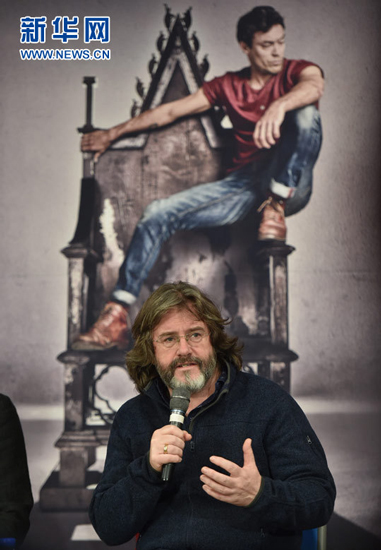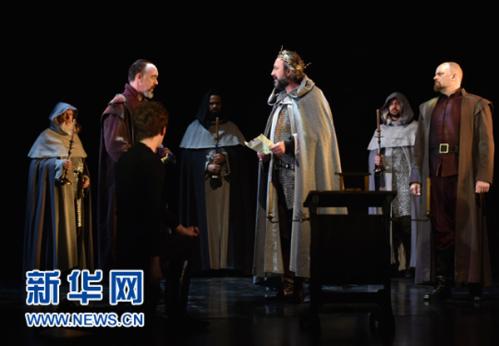The Royal Shakespeare Company's current tour of China comes at an immensely significant time: this year marks the 400th-anniversary not just of Shakespeare's death but of his legendary Chinese contemporary, playwright Tang Xianzu. It's the inspiration for a momentous cross-cultural initiative at Beijing's National Center for the Performing Arts.

The company staged 'Henry the Fourth Part One', 'Henry the Fourth Part Two', and 'Henry the Fifth' at the NCPA last weekend before heading to Shanghai and Hong Kong.

The company staged 'Henry the Fourth Part One', 'Henry the Fourth Part Two', and 'Henry the Fifth' at the NCPA last weekend before heading to Shanghai and Hong Kong.
Chinese people are keen to join this year's celebrations of the "Bard of Avon". And the RSC's tour with three of Shakespeare's History plays is ample encouragement. The company staged 'Henry the Fourth Part One', 'Henry the Fourth Part Two', and 'Henry the Fifth' at the NCPA last weekend before heading to Shanghai and Hong Kong.
But the mission doesn't stop when the curtain falls.
This collaboration included mounting a workshop in Beijing, where British and Chinese actors exchanged lines in their respective languages.
And the NCPA is staging a year-long cultural initiative entitled "A dialogue between East and West: Shakespeare and Tang Xianzu".
Sometimes dubbed the "eastern Shakespeare", Tang's most influential plays include 'Mudanting' - or 'Peony Pavillion' in English - which, with its two young lovers is very much in the spirit of Shakespeare's 'Romeo and Juliet'.
Moreover, a new dramatic work linking the two playwrights will premiere in October this year in a collaboration between the Shanghai Dramatic Arts Center and the Gecko Theater Company of the U.K.